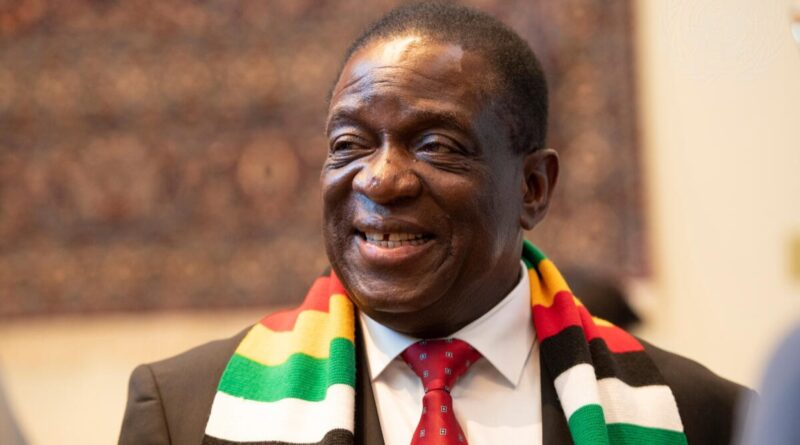Zimbabwe: Meet the Candidates For Zimbabwe’s Presidency
Harare — Emmerson Mnangagwa
Emmerson Mnangagwa, the current leader of Zimbabwe, was born in Zvishavane, Southern Rhodesia (now Zimbabwe), on September 15, 1942, to Mafidhi and Mhurai Mnangagwa. In 1955, his family moved to Zambia where he attended the Mumbwa Boarding School, Kafue Trade School, and Hodgson Technical College.
Mnangagwa is a former vice president of Zimbabwe, nicknamed Ngwena, or The Crocodile.
He joined the Zimbabwe African People’s Union (ZAPU) in 1962, a group that was fighting for then Southern Rhodesia’s independence. He was deployed to China and Egypt in 1963 for military training. He then returned to Southern Rhodesia to fight for independence. In 1965, he was arrested and convicted for allegedly blowing up a train near Masvingo and spent the next ten years in prison.
Mnangagwa was held at different prisons reportedly tortured before he was released and deported to Zambia. While in Zambia, he studied law before he was elected a special assistant to the late Mugabe.
He served as vice president until November 2017, when Mugabe fired him for being disloyal and disobedient to him. But following a “military intervention” that same month, Mnangagwa returned to his post as president of Zimbabwe.
He took over two of Mugabe’s previous roles – as leader of the party and of government.
Mnangagwa won the 2018 presidential election and took office on July 30. Mnangagwa has promised job creation and compensation for those who had their land seized by the government in the past. He has also promised fair, democratic elections and financial stability
Nelson Chamisa
At 45, Nelson Chamisa, the leader of the opposition Citizens Coalition for Change (CCC), is Zimbabwe’s youngest presidential candidate. He was born in Masvingo, south of the capital, Harare, on February 2, 1978.
He was born in Masvingo in 1978 and studied at Harare Polytechnic and the University of Zimbabwe.
Chamisa, a lawyer, studied law and political science at the University of Zimbabwe and also possesses a theology degree. He is also a pastor.
He is just a few years over the constitutional minimum age limit to run for president.
Chamisa is hoping to unseat President Emmerson Mnangagwa, the leader of the ruling ZANU-PF party, in August’s landmark elections – the second without long-time president Robert Mugabe on the ballot.
Mnangagwa of the ZANU PF defeated Chamisa in a contentious election on July 30, 2018. Numerous people have condemned the election for being unfair and lacking legitimacy. In Zimbabwe’s constitutional court, Chamisa contested the election results, but his case was ultimately rejected with costs. Chamisa questioned the independence of the court following his inability to persuade the Constitutional Court, and he has since assured his followers of a plan to reclaim the stolen election victory.
Chamisa asserts that ZANU-PF lost the election. The EU observers and a number of other observer organizations that concluded that the elections were not free and fair largely support his claims.
Saviour Kasukuwere
Saviour Kasukuwere, a prominent politician, businessman, and farmer from Zimbabwe, gained notoriety as a significant associate of the late President Robert Mugabe and his wife Grace.
Under Mugabe’s rule, he held a number of ministerial roles, most notably those of Minister of Local Government, Rural Development, and National Housing and National Political Commissar for Zanu-PF. Additionally, he was a G40 faction leader who opposed Emmerson Mnangagwa’s ascent within Zanu-PF.
After the military operation in 2017 that drove Mugabe out of power, he was expelled from the party and the legislature.
Kasukuwere is married to Barbara Kasukuwere, and together they have three kids: Takudzwa, Natasha, and Christian. He is a farmer and businessman who owns a number of properties and enterprises in South Africa and Zimbabwe.
Born on September 23, 1970, in Mount Darwin, Mashonaland Central Province, he pursued his secondary studies at Bradley Institute after attending Chiunye Primary School. Kasukuwere entered politics when he began backing Zanu-PF in the late 1980s. When he was operating in Mutare, he went by the alias Tyson and was a junior member of the Central Intelligence Organization (CIO). In 1994, he left the CIO to focus on his own business endeavors.
He was chosen as the Mashonaland Central Zanu-PF Youth Chairman in 1999. He won the Mount Darwin South seat in the House of Representatives in March 2000, and he held it until 2017. In 2004, he also was elected to the Pan-African Parliament.
He advanced through Zanu-PF’s ranks and served in a number of cabinet positions throughout Mugabe’s rule.
From 2005 to 2009, he served as the deputy minister for youth development and employment creation. From 2009 to 2013, he served as the minister for youth development, indigenization, and empowerment. From 2013 to 2015, he served as the minister for environment, water, and climate. From 2015 to 2017, he served as the minister for local government, public works, and national housing. His portfolio was expanded to cover rural development in October 2017.
Kasukuwere declared that he would run as an independent in the 2023 presidential election.
Through his chief electoral adviser and attorney, Jacqueline Sande, Kasukuwere made the declaration on June 21, 2023, when he submitted his candidacy papers to the High Court. He declared that he was prepared to compete for the top job in the country with both Nelson Chamisa of the opposition and President Emmerson Mnangagwa.

